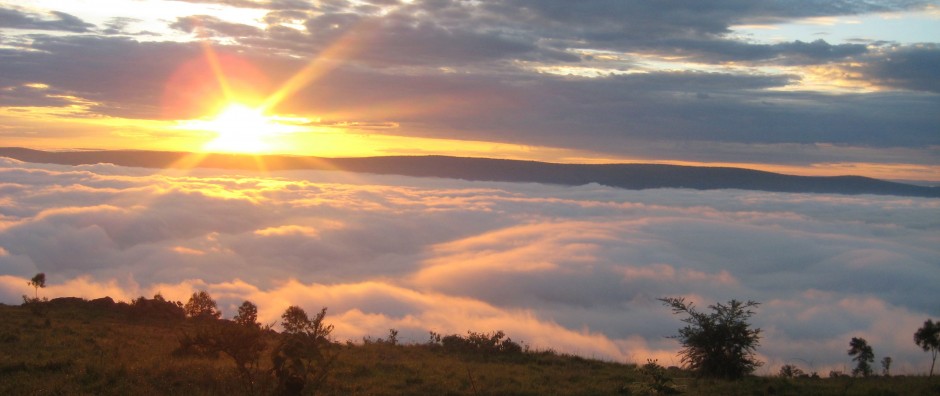One of the things you quickly realize in Tanzania is that Tanzanians have a different idea of personal space than Americans. Nowhere is this more readily apparent than on public transportation. Americans in major metropolitan areas crowd onto public transportation during rush hours, but Tanzanians will crowd regardless of the time, in in ways that would make many Americans blush.
The local transport in Ngara district from town to town takes the form of “taxis” or Toyota hatchbacks with (officially 5 seats). These cars rarely drive from destination to destination without at least 10 passengers, and more frequently are completely packed with 14. People sit in the trunk, on peoples laps, and squeezed onto the same seats as their neighbors. There is all kinds of touching that would freak many Americans out.
Generally, bus travel from city to city is not as bad. There are assigned seats, and every person is assigned one. These seats are far from comfortable, but they are acceptable for long journeys, and you have at least a little bit of personal space. However, as these busses travel from major city to major city, if they pass through smaller towns, they often pick up passengers. These passengers can buy tickets in advance, but they are not guaranteed seats if the bus is full. Ngara is one of these small towns, and if I want to travel directly to Dar es Salaam I need to get on the bus coming from Burundi. I have taken this bus before, but not until last week was I unlucky enough not to get a seat.
I got on the bus to find it completely packed. There was hardly enough room for all the passengers to stand, so of course I was standing. Being tall, I couldn’t stand up straight without my head going through the roof. And, of course, I was in the “personal space” of a number of other people. Only 30 minutes after getting on board, the bus was stopped in Ngara by the police, who said the bus was overfilled, and charged the operators for the number of standing passengers (20). This process took nearly an hour, as I (guess what) stood on the bus. When the bus began to move again, it became clear that I was going to have to figure out how to sit down somewhere. A number of passengers in the back had buckets they were sitting on, but there were no more buckets, so I sat on top of a bag of clothes another volunteer had brought for her trip. I was squeezed in the aisle by the legs of two sitting women, and the man sitting behind me. One of the other volunteers turned to face me, and our legs intertwined in next to no space.
I spent all but the final 3 hours of my journey (which took 30 hours in total, excepting the 4 hours we stopped in the middle of the night because of “road insecurity” – when I sat outside on the curb in the middle of the night) sitting in random positions on the floor, leaning on and being pushed by many different enormous Zanzibari women. I slept for about 30 minutes against a fat roll of the women who insisted on taking up about about a quarter of my aisle space. I have never been so physically close to so many married Muslim women in my life. At one point, towards the end of my journey, and after I had a bucket to sit on, one of the women sitting behind me stood up to have a conversation with her friends who were sitting beside and in front of me. She proceeded to molest my back by leaning against me and rubbing her fat rolls all over me.
It was in that moment that I understood: Tanzanians don’t have personal space like Americans.
